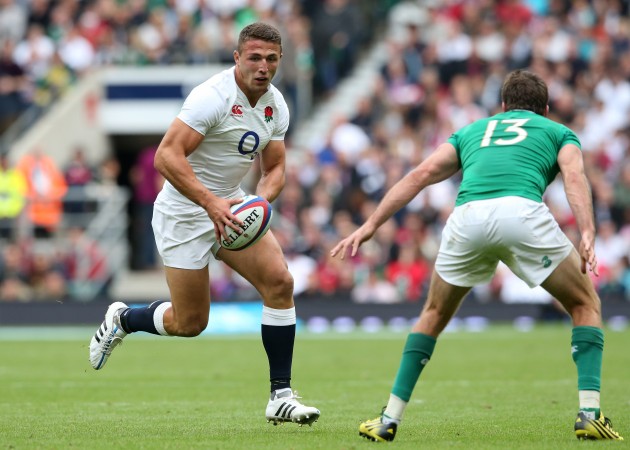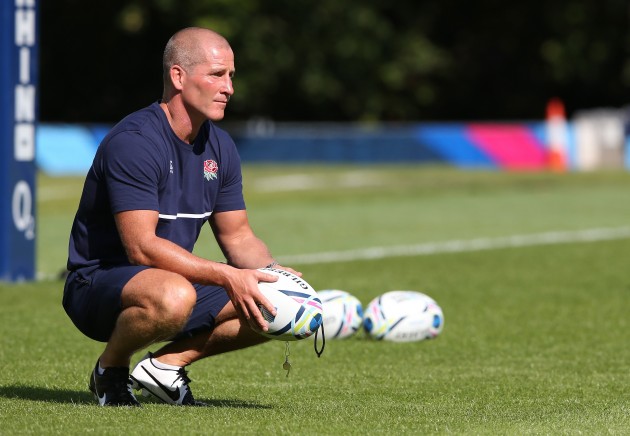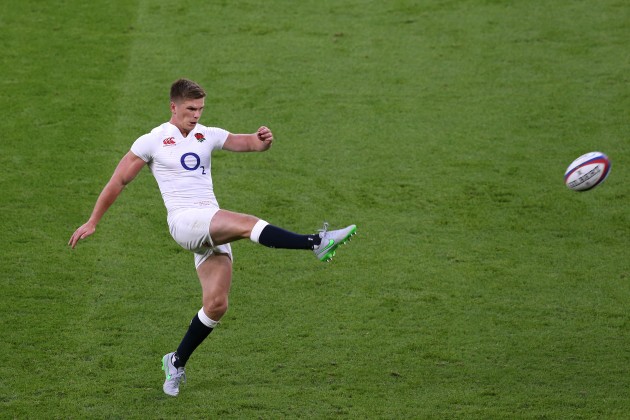Stuart Lancaster may have a pretty good idea of his starting XV but his wider 23 is more complex. We guage his options for the opener against Fiji
By Adam Hathaway
Stuart Lancaster has made some hard calls in the last few weeks as he has whittled his squad down from 50 to 39 then to 31 for the World Cup. He has got a few more hard calls to make before the opening match against Fiji on 18 September. This is where the England boss really will earn his corn.
As we all know 31 into 23 won’t go and the make-up of the bench will be crucial for every team in the tournament. Get that wrong and you could really be struggling.
Getting the right replacements is only half the problem. Using them at the right time is crucial and many games are destroyed as spectacle when both coaches flood the pitch with substitutes in the second half.
We are told they have all sorts of data about when players are tired and more prone to injury but Lancaster says he does most of his substitutions on gut coaching instinct.
I wonder what his gut is telling him about the make-up of his bench for the World Cup.
Lancaster just about knows his starting XV for the first game and barring injuries has already said that the same lot will be running out against Wales and Australia.
He doesn’t have the luxury that Joe Schmidt or Philippe Saint-Andre have of being able to tinker around with things in his first three matches. He has to get it spot on from the off and, as we are continually told it is a 23-man game nowadays, so the bench is vital.
Assuming Lancaster goes with the five forwards and three backs replacement split he employed against Ireland at Twickenham, and not the six-two ratio Bath employ if you-know-who, is on the bench then he has a puzzle to work out.
He has to have three front rowers in there, and a lock, who can cover in the back row, and one of Ben Morgan or Billy Vunipola for their ball-carrying late on.
One of the backs will be a scrum-half, probably Richard Wigglesworth, but the other two spots are a conundrum.
England are not exactly over-run with the rugby equivalents of David Fairclough, Liverpool’s ‘Super Sub’ of the 1970s, who always seemed to deliver a match-turning goal when he came off the bench.
We have seen what Sam Burgess brings – a bit of oomph, some big tackles and not a whole lot else. He does exactly what it says on the tin.
Back in 2003 Clive Woodward made one of the most celebrated substitutions of all time when he brought on Mike Catt, for Dan Luger with Mike Tindall moving to the wing, to shepherd Jonny Wilkinson through the quarter-final against Wales in Brisbane.
Catt was a proper footballer and with the best will in the world you can’t imagine Burgess doing a similar job with George Ford.
You can imagine him running through a few tired midfields and offloading the ball if England realise they have to have someone right on his shoulder.
Henry Slade could bring a bit of footballing nous, the ability to cover 10,12, 13 and 15 and a spot of long-range goal-kicking.
But if Slade is on the bench where does that leave Owen Farrell, who closed out the game against Ireland last weekend with two late penalties?
Anthony Watson has been running at full-back in training so that probably spells bad news for Alex Goode for the first three weeks at least.
And Farrell has too much credit with Lancaster to not be involved in the match day 23, and the England coaches have invested too much time in Burgess recently not to get him on the park at some point.
So Slade looks a likely fall guy which is a shame for those of us who prefer a bit of guile to the battering ram.
I reckon Lancaster will stick with Farrell and Burgess, but whatever he does he – and his gut – have got to get this one right.








